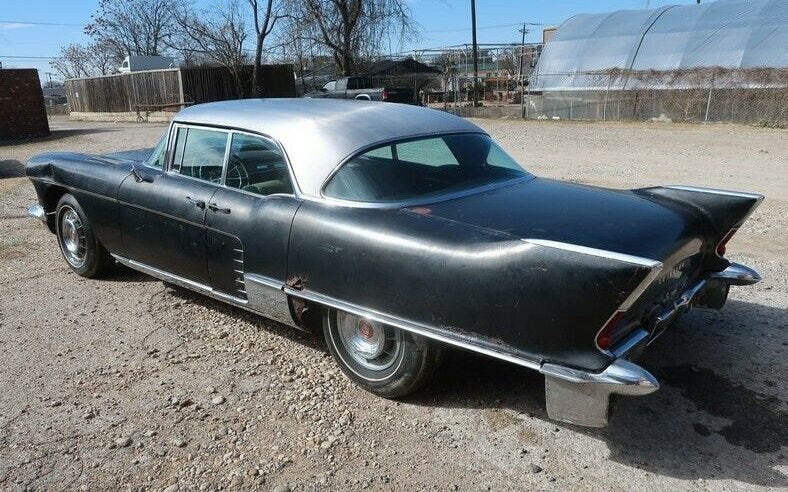To paraphrase François Truffaut, you can’t make an anti-war movie because watching war is exciting; it becomes propaganda of the pro-war variety. American Football came about because college-aged men were jealous of the awful stories veterans told of the Civil War; it began with eye gouging and no helmets, so they would have “war wounds” to show off. And as someone who’s written two crime novels and a few dozen short stories in the genre, I have begun to wonder if crime stories make us more authoritarian.
Even if you write stories about the abuses of the criminal justice system, the urge to punish is just under the surface. Cops in prison, surrounded by those they’ve victimized; corrupt prosecutors facing vengeance from the wrongfully convicted. There are other options, but even if the writer’s intentions do not focus on revenge, it may inspire vengeful thoughts. True crime stories offer the same, whether the perpetrator is punished or not. In a system where justice is applied unevenly, we can become cheerleaders for punishment.
I found myself cheering when Alex Murdaugh was convicted. He was the son of a rich family that had been flouting the law for generations; they had to take his grandfather’s portrait down from the wall of the courtroom where he was tried. The murder of his wife and son was supposedly fomented by one son’s drunken boat accident that killed a young woman, and the murder of a gay teen, allegedly by another of his sons. Or maybe they were the same son. I don’t know, but they sure seem like monsters that we’re better off without, don’t they?
It’s horrible to say that about anybody. But when you’ve been wronged, and see how selectively the rules are applied in this country, you get your catharsis where you can. And I think that’s why we love true crime and fictional crime stories. I mean, I want to abolish prisons, at least for nonviolent crimes. I don’t want prisons to be hellholes for the violent, either. I like what those Scandinavian countries do, where it’s like a cheap hotel room. The punishment is the restriction of your freedom. (When we start complaining that the imprisoned get three meals and a bed, we should take a hard look at our social safety nets.) I know that prison abolitionists don’t make exceptions for violent criminals, but I’d rather start somewhere. And as a victim of violence, I prefer them to be contained.
Alex Murdaugh does not deserve to walk freely, and I don’t think that counseling is adequate. Another is James Parrillo, who you can read about in the stories below. He is allegedly a serial kidnapper, who has picked up several women on thru-hiking trails by lying about his background, and then using violence and threats to isolate them from their families, sometimes for years. He was arrested at a New Jersey gas station when his victim saw a dead bolt on a door and used it to escape from him long enough to convince the gas station owner to call the police.
Parrillo’s list of victims stretches back decades. A California D.A. didn’t like his first victim enough to bother prosecuting; so they let him keep raping and beating women for twenty years. You can read the story of one of his victims who escaped, and why her case was not pursued, in this excellent article by Bill Donahue for Backpacker. It will enrage you.
Another true crime case that has fascinated me for years is the Lindbergh baby kidnapping and murder. One man was convicted and executed for the crime, a German immigrant named Bruno Hauptmann. For twenty years, investigators have been asking the NJ State Police to allow DNA testing of the ransom envelope and stamps, and the makeshift ladder used to climb in the window to steal the baby. And they keep denying access, and then say “they can’t discuss an ongoing case.” I thought the case was closed? The evidence was released a long time ago.
In my opinion, they probably consider this case a “historic win” and don’t want to smirch their reputation. And also in my opinion, I never believed that Hauptmann—who went to his execution proclaiming his innocence, when he could have plead guilty and asked for mercy—acted alone. The kidnapping was bungled, the ladder broke and the baby was killed, but it still seems unlikely that he planned and committed it alone. If the DNA on the stamps and envelopes matches his relatives’, then we can say oh well, Bruno licked them and not some partner in crime. (He may have licked his partner as well, who am I to say?)
It’s obviously not critical at this date, and it would certainly not exonerate Hauptmann—whose garage provided the wood used to make the ladder, and where marked cash was found—but it would bring a little more light to an infamous case that was focused on a single perpetrator, who seemed like a hapless stooge.
Knowing how eager many of us are to mete out punishment, I have given a lot of thought to the stories I write. In Bad Boy Boogie, wanted readers to think about who they want to see punished, and who they permitted to mete out punishment outside the law, and go unpunished themselves. And how deciding to avenge a victim was not a choice you get to make without the victim’s consent. In The Boy from County Hell, punishing the wicked before their victims becomes another form of inflicted trauma. And yet, like a war movie, my books don’t disavow the vengeance they portray. They continue the cycle, the blood feud that fuels our love of punishment.
I think I am about ready to write the third Jay Desmarteaux book, Excitable Boy. In this one he goes beyond vengeance. And beyond Thunderdome. It’s Mad Max in the Texas Wasteland, and Jay will meet his Furiosa.








I love that you brought this up. I've noticed a variety of answers when I ask a crime writer "why do you write crime stories?" Most traditional/cozy writers talk about justice, feeling there isn't enough in the real world so they want to create some. Noir writers tend to just laugh at me and take another drink.
For me, it's all about exploring the gap between who we are and who we say we are (part of my definition of "noir"). I like to think of it as the opposite of the authoritarian impulse (which we all have--never met a person who couldn't answer the question "what would you do if you were king of the world?") but I could just be kidding myself.
Point is, love this essay, thanks!
That's rich they call the 1932 Lindbergh kidnapping case "ongoing." Even the baby would most likely have died of old age by now, let alone any adult involved.